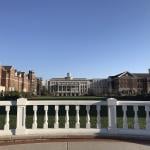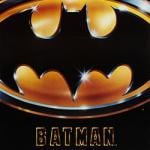A FEW STARS FROM A CONSTELLATION THAT HASN’T BEEN DRAWN YET: Scattered thoughts, in no coherent order, related to this whole Vatican-gay-priests-Andrew-Sullivan-mishegoss.
* Through philosophy I came to accept that if objects in and aspects of the physical world have meaning, they attain this meaning only through the agency of a Creator God–that if nature is a language, it can only be the language spoken by God. Philosophy didn’t, though, convince me that the physical world did have this intrinsic meaning, this language. Eliot’s “Preludes” helped to convince me. A strange stippling of peeling paint on a Yale bathroom wall helped to convince me. And also, a woman’s face, as beautiful as the moon under water, helped to convince me. In my own life, I can’t unhook the longing for beauty that drew me to the Church with the longing for the beauty I saw in other women. (And I don’t especially want to unhook those things, I must admit. It seems to me that Catholic faith and chastity might be one way for me to honor those women. Look how important you were!)
* Yeah, that “Did you know priests can’t be lesbians?” line, from my earlier post, was there because it’s cute. But I meant it, too, in a way I wonder whether any male commenters on this whole gay-priests thing have really understood. If not being able to be a priest means the Pope thinks you’re horrible, well, lesbians aren’t the only women who should be upset. If you can’t handle the fact that there are strong reservations (not even a thoroughgoing prohibition), based on a practical procedural document, against your receiving the sacrament of Holy Orders–well, hi there, we’re half the world, we’re called “women.” You may have heard of us.
* What is your identity? A few of the responses to my prior post have argued that I’m not understanding that being gay is Who I Really Am, and that’s what makes not boffing girls different from every other sacrifice anybody’s been asked to make. Oh. See, ’cause I thought that this understanding of homosexuality is actually pretty recent, and deeply culturally conditioned and culturally dependent (doesn’t mean it can be “changed”; just means that how people express and understand homosexuality changes based on their culture). And I thought there were lots and lots of cultural expressions of basic facts of human nature or individuals’ natures, which might be experienced as “deep-seated,” which were nonetheless prohibited by the Church: There are and have been countless cultures in which men felt that their identities as males required cruelty, to take an easy example. St. Augustine has especially acute comments on that dynamic, and on how deeply it can be embedded even in the nature of a believing Christian man.
* It might be relevant to note that restrictions on the religious practice of holy people is anything but unprecedented. Fr. Solanus Casey was not allowed to preach or hear confessions except in emergencies. St. Therese, famously, was turned down at least once by the Carmelites, and I think multiple times. Women–there we are again!–can’t be priests. Doesn’t mean we can’t be holy.
* Struggle and suffering can coarsen a person’s character. They can also gentle and strengthen it. I’ve learned so much about what the latter looks like from gay men and lesbians. (And I’m using those terms intentionally–I don’t just mean “people with same-sex attractions,” I mean people who radically disagree with me about the morality of homosexual acts.) When y’all want to talk about gay people, you might keep that in mind.
* I know I find it relatively easy to believe the Church about homosexuality, as vs. believing the culture in which I was raised, in large part because I never for a moment believed I was intrinsically good. I never believed that the fact that I really, deeply wanted something made that thing good. I found the Catholic understanding of the Fall–that we are neither good nor bad, but Fallen–astonishing and hopeful.
* I know that the alienation I experienced as a result of, among other things, my sexual orientation made it much easier for me to believe the Catholic account of human nature. If I were heterosexual, I don’t know if I would be Catholic today.
* So okay, what should people actually do? What works? Friendship, immersion in the Church’s beauty and its history of difficult converts, and–above all–devotion to the Eucharist. I guess you can see that as a cliche, or as the only important thing there is to say.
Oh, and music. Music is always good.











